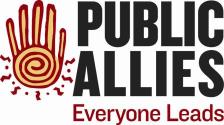Imagine for a minute you are back in high school. You have a single parent at home. You work to support your family. Sometimes you wonder if there will be food on the table when you get home for dinner. At school you have trouble focusing, and you often ask why you’re even there. You want to go to college, but don’t think you’re smart enough or have enough money to succeed, so what’s the point of trying?
For many high school students today, especially in struggling urban communities, this isn’t an exercise in imagination, but a daily reality. Add to this mix very tight school budgets and overworked school staff, and you begin to see why so many students struggle, and many fall through the cracks of high school and drop out.
There are, however, some programs in schools that try to fill those cracks to keep students from falling through. One of those programs is Student Space, a pilot program in Bridgeport, Connecticut, the result of a collaboration between the Regional Youth Adult Social Action Partnership (RYASAP), Public Allies Connecticut, and Bridgeport Public Schools.
The Student Space is a physical space located in Bridgeport’s three big public high schools: Bassick, Central, and Harding. The program is meant to connect students to resources they need both inside and outside the school. It helps form collaborations between schools and community programs that students can access to help them achieve in school.
Darrel is one student referred to Student Space because of his low grades and poor attendance. The process starts when a Student Space staff member pulls him out of his gym class and walks Darrel to the Student Space, explaining why he was referred and that the program is there to support him. Darrel is given an opportunity to talk about his life outside of school and how he struggles to complete his work at home and doesn’t really feel connected to the school community. Darrel then mentions he enjoys writing poetry. The Student Space staff member tells Darrel he will look into getting a tutor for him and that he should come back to discuss planning a poetry event at the school.
This example highlights one of the most important aspects of the Student Space program, individual conversations. When we think about our daily lives, many of us don’t get a lot of time to sit down and talk while someone else just listens. A lot of our students feel the same way. That is why we focus on individual conversations so we can learn about what a student’s needs are and connect them to the proper resources.
As the year continues, we hope that our pilot program can begin affecting change both for individual students and for the school community as a whole. We hope through our support and our increasing connections to community agencies that we can help students who never believed they could succeed do just that. We know that these students have what it takes to make it, and we are going to work our hardest throughout the year to make sure that they do.

